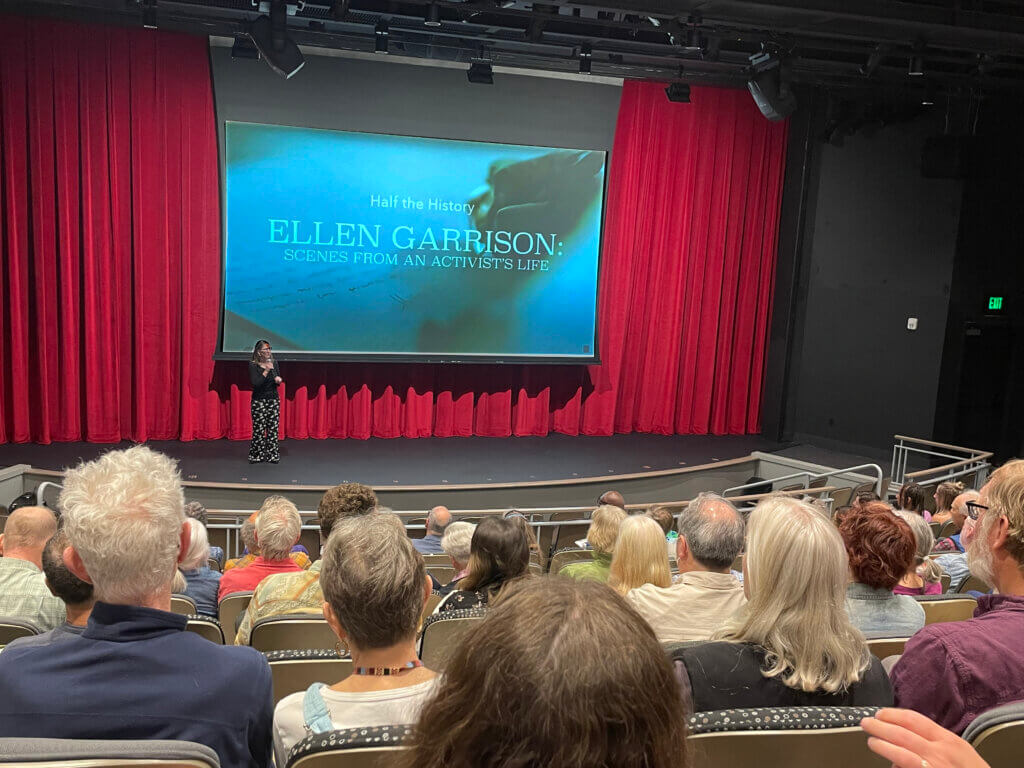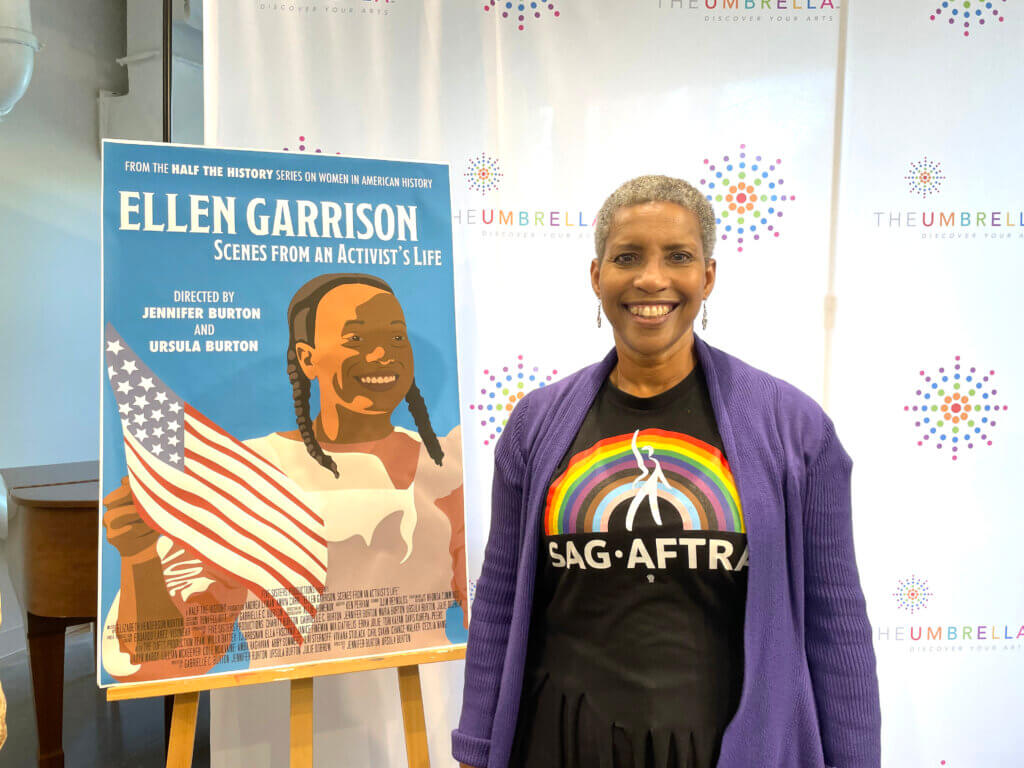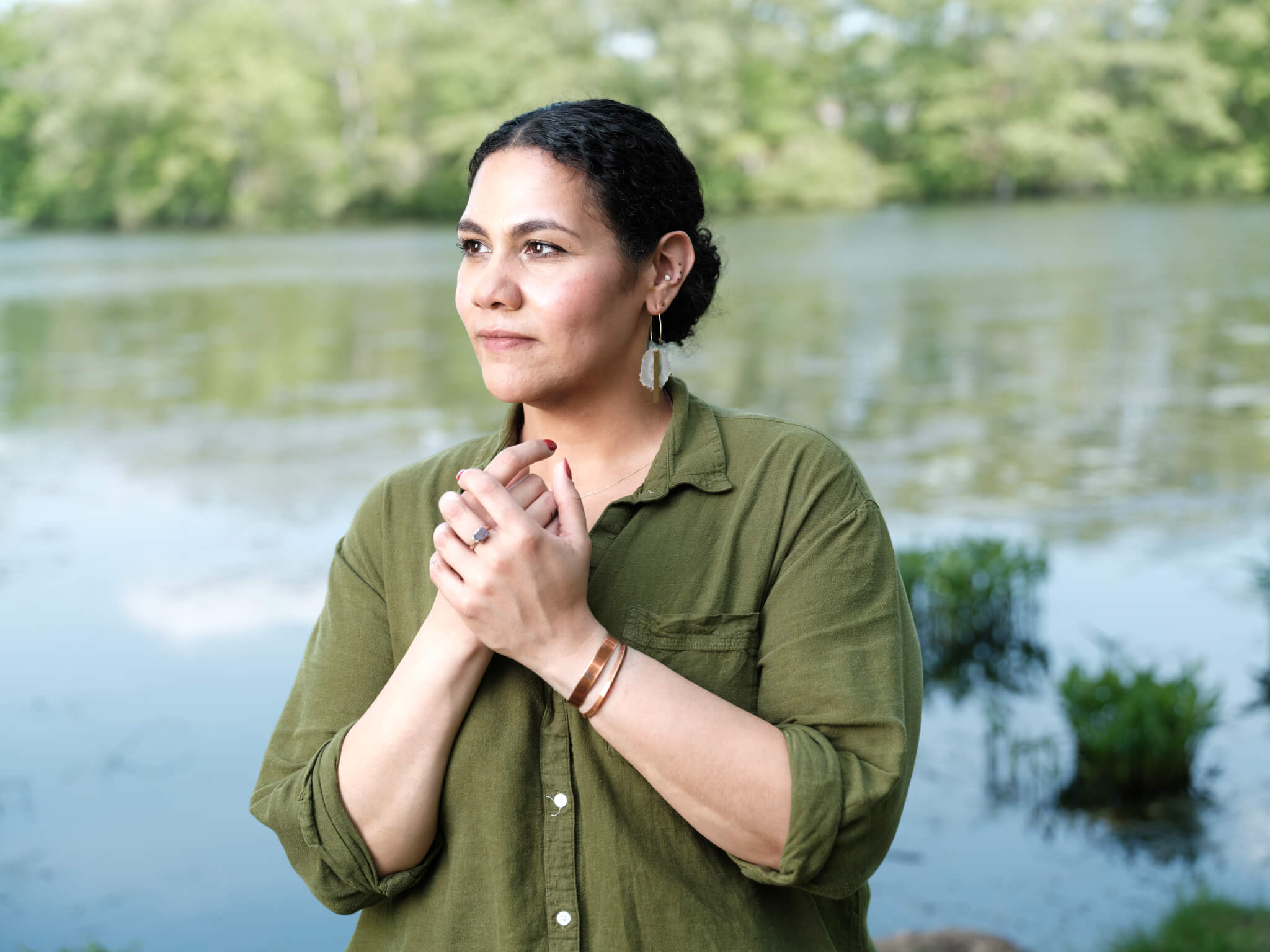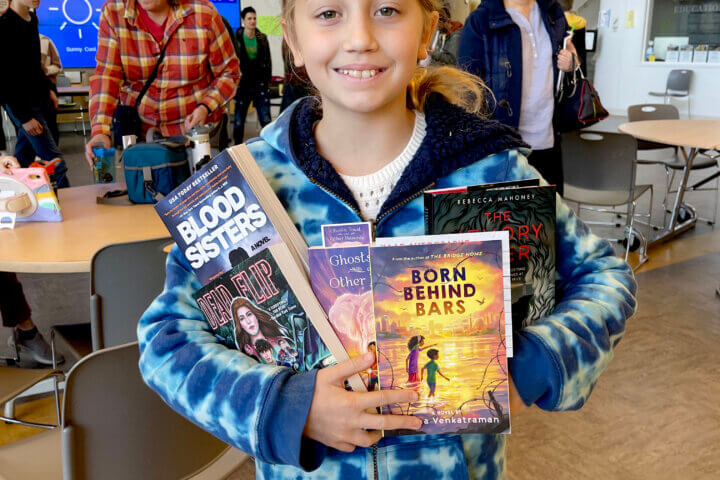By Christine M. Quirk — Christine@theconcordbridge.org
In an auditorium filled with actors, extras, history buffs, and Concordians — many wearing “Stand Up for Ellen” buttons — the Umbrella Arts Center this month hosted the world premiere screening of “Ellen Garrison: Scenes from an Activist Life.”
Sam Williams, who wrote a poem titled “Stand Up For Ellen” for the event, called Garrison “an iconic symbol.”
“Concord is known for the shot heard ‘round the world, but Ellen, I think, was also the shot that was heard around the world, but in a different way,” Williams said.
Garrison, born in Concord in 1823, was an abolitionist, educator, and an early civil rights activist. Interest in her legacy has soared this year, thanks to a community effort to name the new middle school in her honor.
The movie is part of Five Sisters Productions’ “Half the History” project, a series of short films focusing on lesser-known — or unknown — women in American history. It was directed by Jennifer Burton and Ursula Burton and produced by Five Sisters and Julie Dobrow. The film’s West Coast premiere was to be on Juneteenth in Altadena, California, where Garrison died and was laid to rest.
Jennifer Burton teaches film production at Tufts and matches her students with professionals in the industry. This is the seventh movie in the series.
“There are so many stories that haven’t been told,” she said.

Local history, local filming
This is a Concord movie in every sense: Filmed in the Robbins House, Orchard House, and the Concord Armory, with the Umbrella Arts Center as a staging area. Many Concordians were extras in the movie.
“We filmed [at Orchard House] with the desks Greta Gerwig used in ‘Little Women,’” Jennifer Burton said. “Concord is a filmmaker’s dream.”
The 13-minute film chronicles highlights from Garrison’s activism and teaching career.
In 1835, 12-year-old Garrison was invited to walk in the town’s Bicentennial Parade. But as the only Black student at the town’s school, she had been ill-treated, and her mother, Susan, was reluctant to let her go. A white schoolmate, Abba Prescott, offered to walk with her, and the two girls marched hand in hand.
Susan Garrison was a founder of the Ladies’ Antislavery Society of Concord, and as a teenager, Ellen Garrison attended meetings and signed petitions. As a teacher, she later dedicated herself to promoting literacy to formerly enslaved persons in the South.
Jennifer Burton got the idea for the documentary nearly a decade ago, when she talked to a researcher exploring Garrison’s life.
“But now there was so much more information, we could do an entire film,” she said. “I read about the parade, and it seemed like the story should be told now.”
The movie was a year and a half in the making, but Andrea Lyman, who plays the adult Garrison, said her scenes were shot in a day.
Another pivotal film scene dramatizes Garrison and her colleague, Mary J. C. Anderson, also a Black teacher, being told to leave a Maryland train station waiting room because it was for white women only. Garrison objected, citing the Civil Rights Act of 1866, but she and Anderson were forcibly removed. The women sued, and though the grand jury dismissed it, it remains an early legal challenge based on that law.
“She’s so inspirational,” Lyman said. “I love being able to go into a new world. That’s what acting is like; you get to explore new worlds.”
Spreading a legacy
Garrison left behind a hundred letters which provided details of her story. But one missing thing, Jennifer Burton said, is a photograph.
“We’re looking through all the newly digitized sources, and I think one day we’ll find one,” she said. “Maybe it’s in somebody’s attic. … You’re finding new material all the time.”
Jennifer Burton said educators have already contacted her about using the film, and she is excited to be working with the Robbins House, which will use it as a teaching tool. Audience members suggested it be part of the middle school curriculum so that students in the forthcoming Ellen Garrison Building at Concord Middle School can learn about her.
“We want to have as many people see it as possible,” she said.
And in a town steeped in history, where people talk casually about “Thoreau” and “Alcott” and “Emerson,” Garrison is not “Garrison” or “Clark,” her married name. Many times, she’s simply “Ellen.”
“We talk about her like she’s gone, but she was in that room today,” Williams said. “She’s in all of us — in anyone that takes on important fights in supporting young people and helping to advance education, in dealing with issues around civil rights, she’s living in us right now.”






